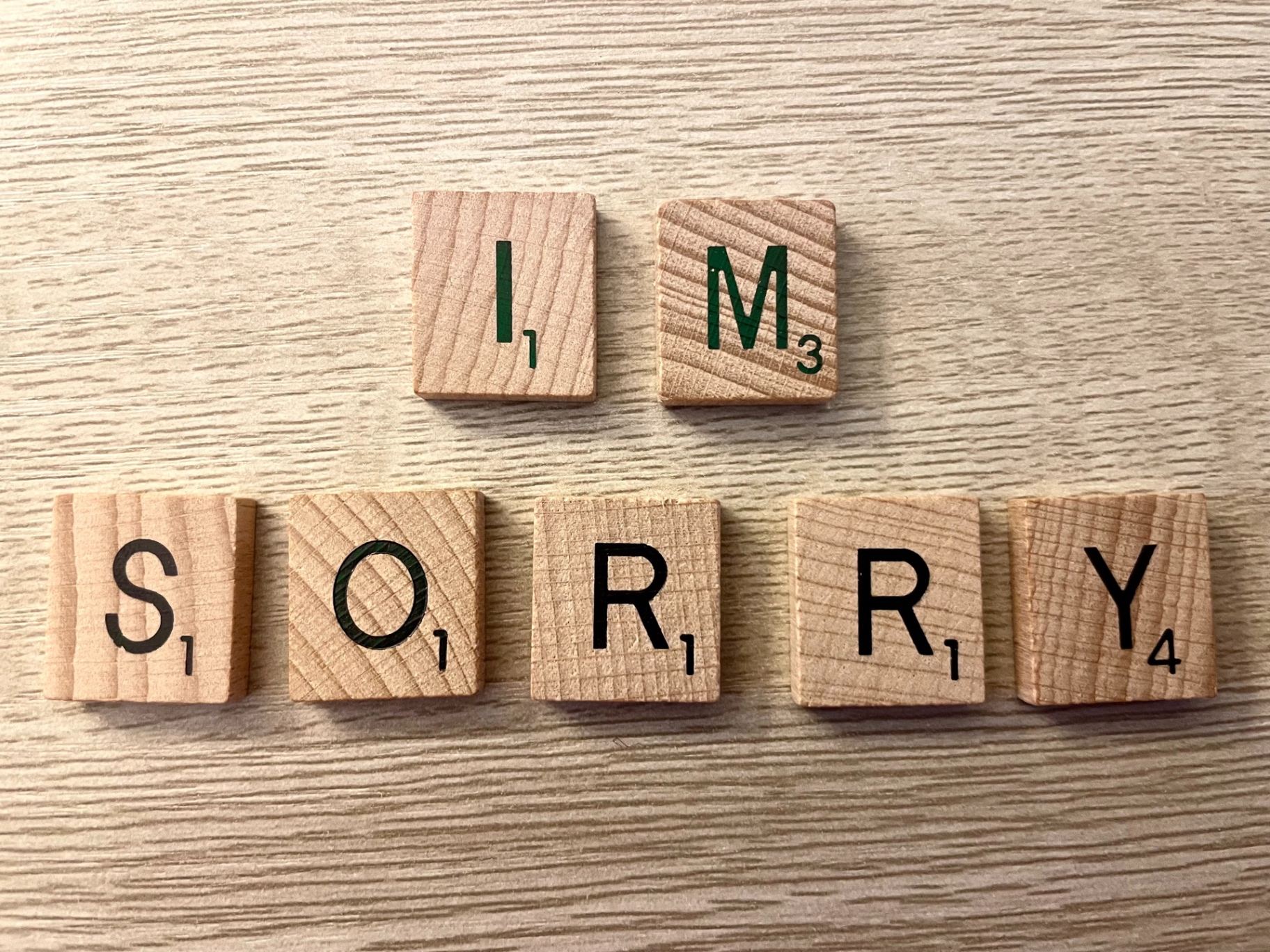How To Stop Apologizing When You Don’t Really Need To

I decided to write this blog some time ago when I noticed a pattern of people apologizing on social media excessively and unnecessarily. For example, a mom posts a lovely photo of herself playing with her kids and adds, “Sorry for the mess in the background.” Or a woman shares a photo of herself at the gym with the caption, “Sorry for no make-up.” I then became hyperaware of apologies in real-life. “I’m so, so sorry to bother you. This isn’t what I ordered.” “Sorry that the rain spoiled your beach day.”
If you identify as an over-apologizer, you are not alone…and do NOT apologize for it. Saying sorry too much is not an uncommon problem (especially among women). So, why do you do it and how do you correct it? Keep reading.
So, Why Do We Over-Apologize?
While there are many possible reasons why people fall into the over-apologizing trap, some of the most common are:
- People pleasing. People pleasers want to be liked and want to be considered nice and polite. Oftentimes, they are overly concerned with what others think about them and apologize to gain favor.
- Conflict avoidance. Apologizing can become a peace-keeping strategy, a knee jerk reaction for those who have an aversion to conflict. Claiming responsibility in order to make a problem or potential problem disappear feels much more comfortable to some than engaging or the potential of engaging in conflict.
- Lack of confidence. Insecurity leads to the belief that you do things wrong, cause problems, or are an imposition. Those with low self-esteem often doubt that what they are doing or saying is right and, therefore, may be quick to apologize because they make the assumption that they are in the wrong.
- A misguided attempt at expressing caring or compassion. Sometimes, people who are sensitive and care deeply about the feelings of others find themselves over-apologizing even when they’ve done nothing wrong. It’s an effort to connect and provide support and empathy.
4 Strategies To Help You Cease Your Over-Apologizing Behaviors
- Ahh, the power of the pause. Before apologizing, stop! Take a deep breath and ask yourself the following questions, “Have I done anything wrong?” “Am I taking responsibility for someone else’s mistake?” “Is it something I actually had control over?” If the answer(s) to these questions is no, don’t apologize.
- Find alternate ways to express caring and compassion without apologizing. Your friend just shared that they are having a really bad day. Your go-to response is, “I’m sorry.” Instead, try something like, “Is there anything I can do to help?”
- Are in the habit of prefacing questions with apologies? Instead of saying, “I am sorry, but I didn’t hear you,” say, “Could you please repeat that; I didn’t hear you.”
- Made a mistake, especially one that was harmless? You’re human! Don’t automatically start apologizing. Instead, try turning your response into a thank you or statement of appreciation. Try, “I am glad you caught that” or “I thank you for your patience.”
In Summary
Apologizing when you’ve done something wrong is a real strength, but compulsive apologizing dilutes your apologizes and can make you appear less confident. Save those apologizes for when they are truly warranted and if you struggle with ceasing your over-apologizing habit, therapy can help.
